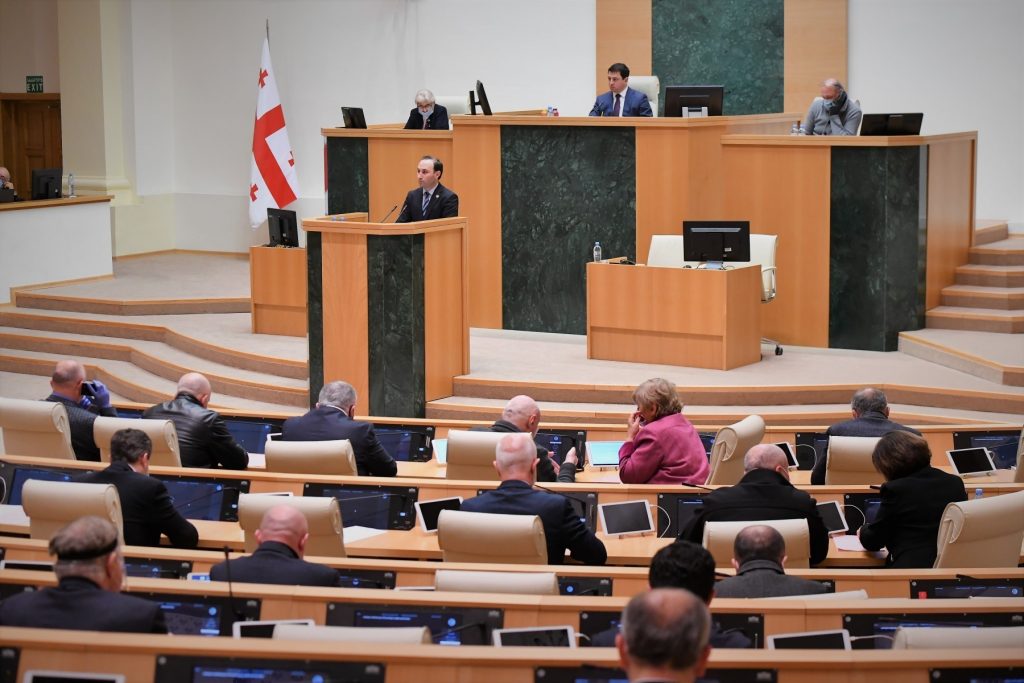Individuals found guilty of repeat violation of the state of emergency or martial law regulations may face up to six years of imprisonment unless otherwise specified by the relevant presidential decree, says an amendment to the Criminal Code of Georgia, adopted by the Georgian parliament on April 23.
Fast-tracked changes were approved with 80 votes in favor to 0 against. The amended Code will come into force on May 2. The opposition did not take part in the vote.
Legal persons (businesses and organizations) violating the same may incur considerable fines, or might lose their license to, or be closed down altogether.
Repeat violation of self-isolation/quarantine regime defined by the Georgian Law on Public Health will be punishable by house arrest from six months to two years, or by up to three years in jail. These toughened sanctions will remain in force after the current emergency has been lifted. While the state of emergency continues, lighter sanctions prescribed by the presidential decree will prevail.
Controversial changes
These dramatic sanctions for breaching public health regulations have stirred controversy. Several opposition politicians said the new legislation was “draconian”, disproportional and poorly justified.
Anri Okhanashvili, ruling party MP and chair of the Legal Affairs Committee, rebuffed opposition’s allegations, stating that the maximum penalty of six years in prison was a proportional punishment, since it could only apply against a person or a group of persons who had deliberately caused other people to contract the virus, leading to grave health consequences or death.
As stated by Okhanashvili, the strict penalties will only be applied after the expiry of the Presidential decree on the state of emergency currently in force, which envisages a maximum penalty of three years of imprisonment for repeat offenders.
Giorgi Mshvenieradze of the Georgian Democracy Initiative, a local watchdog, questioned the timing of adopting repressive legislation and pointed out that the changes had been “rushed through” the Parliament, without proper deliberation.
“That the new law aims to achieve [strict compliance with the state of emergency measures during the pandemic] is indeed a worthwhile objective. However, most of the relevant offenses have already been subject to a penalty or punishment under the existing Criminal Code, while the scope of this new law is much wider,” he told Civil.ge.
Mshvenieradze also called attention to the fact that worryingly, according to the amended law, the list and categories of offenses punishable under the state of emergency can be defined by the government’s decree – without due parliamentary oversight.
“It means that even a minor transgression or a misdemeanor committed under the state of emergency may lead to criminal liability,” he said.
Follow our live blog for the latest updates on COVID-19 in Georgia:
COVID-19 Georgia Live Blog: Total Confirmed Cases – 431; Recoveries – 132
This post is also available in: ქართული (Georgian) Русский (Russian)

